Hot!
Social life returns gradually to Appiatse

Social life is gradually bouncing back as the Electricity Company of Ghana (ECG) restores power to Appiatse, near Bogoso, and its environs in the Prestea -Huni Valley Municipality, a week after the electrical installations were hit by an explosion on the Tarkwa -Wassa Akropong highway.
Apart from Appiatse, the incident affected power supply from Bepoh and beyond, as balls of fire and thick smoke enveloped the atmosphere in the farming communities.
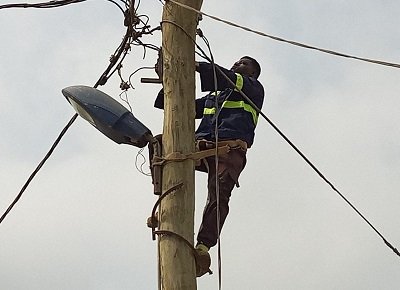
has been restored to the
community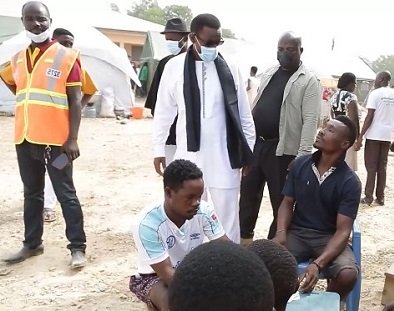
interracting with some youth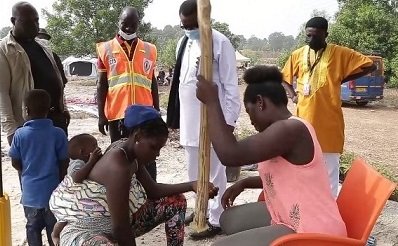
in their new home
“All High Tension (HT) lines have been restored and everyone is on supply. The transformer is also available so power is on stream 24 hours,” Mr Ebo Sagoe, the ECG District Manager at Bogoso, told The Spectator.
He indicated, however, that the meters would be installed after the reconstruction of the Appiatse township had been done.
Meanwhile, the Western Regional Minister, Mr Kwabena Okyere Darko-Mensah visited the Appiatse Relief Camp at Dumase on Sunday to see how the residents were faring.
Mr Darko-Mensah interacted with the displaced to get a first-hand information about how they were coping with life at their new home.
He commiserated with those who were still at the hospitals receiving treatment and wished them speedy recovery.
The Regional Minster assured the Appiatse community that he would liaise with the Local Committee to ascertain their future needs and recommend the necessary action to address them.
He added the government would foot all medical bills and continue to provide victims with relief items since the disaster was no fault of theirs.
Mr Darko-Mensah commended the officers of the National Disaster Management Organisation (NADMO) and the Local Committee for a good job done and urged them to continue with their support.
The Appiatse community was resettled at Dumase after Future Global Resources (FGR) released a land for that purpose. Works began in earnest and completed on Thursday, January 27.
From Clement Adzei Boye, Appiatse
Hot!
Swedru All Blacks back to winning ways, Roshan humble King Faisal

Sekondi Rospak FC made it eight wins in eight successive home games after three second-half goals from John Amoah, Joseph Ntow and Stephen Anthony Kofi. John Amoah opened the scoring in the 55th minute after a barren first half. Joseph Ntow added to the tally in the 56th minute before Stephen Anthony Kofi rounded things up in the 74th minute to give Rospak a 3-0 win over former Premier League side King Faisal.
Elsewhere at Swedru – leaders Swedru All Blacks humbled PAC Academy in an emphatic 2-0 win. Zayat Bubakari scored first for Swedru All Blacks in the 27th minute before Rudolf Junior Nana Kwasi Mensah made it 2-0 in the 34th minute. Swedru All Blacks are top of the table with 36 points – 4 points ahead of second placed Rospak FC.
Meanwhile, Former Premier League side Cape Coast Mysterious Dwarfs recorded their fourth successive home victory after beaten New Edubiase United 2-1 at the Robert Mensah Park. Enoch Odoom struck first for Cape Coast Mysterious Dwarfs in the 19th minute but Steven Asante equalized for New Edubiase United before halftime. After the interval, Godfred Eshun scored from distance in the 65th minute to help Cape Coast Mysterious Dwarfs secure all the points.
Here are the results in Zone Two
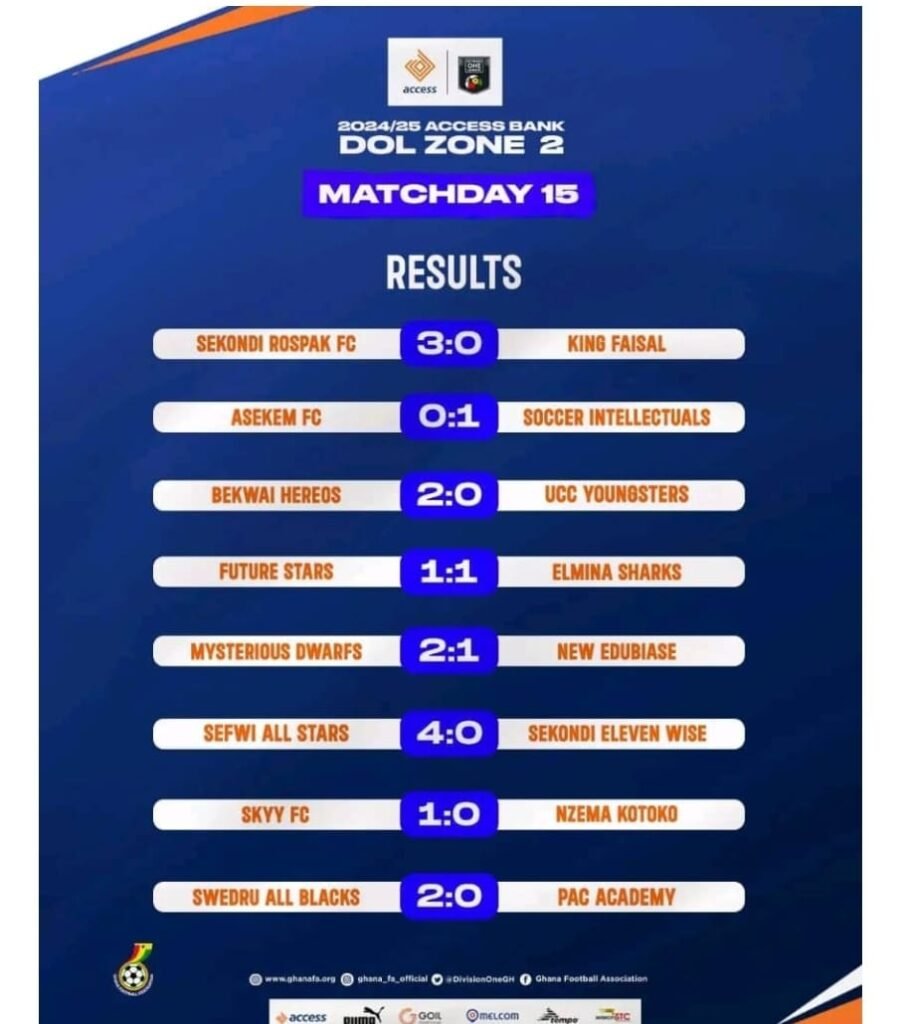
Hot!
Cervical Cancer alert: Avoid sex at early age
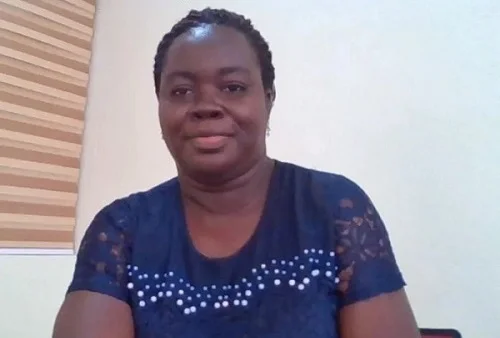
The Programmes Manager of Non-Communicable Diseases (NCDs) of the Ghana Health Service (GHS), Dr Mary Efua Commeh, has advised young girls to avoid sex at an early age.
This, she explained, will give the cervix the opportunity to mature before they become sexually active.
“You need to delay what we call the first sexual intercourse as much as possible to give the cervix the opportunity to mature before the person becomes sexually active,” she said.
Dr Commeh stated this in an interview with The Spectator in Accra on Tuesday as a part of the Cervical Cancer awareness month.
According to her, cervical cancer was the second leading female cancer in Ghana with a total of about 3,072 cases annually, and out of that, 1,815 deaths are recorded, representing more than 50 per cent.
She indicated that “If young girls are going to be sexually active, then you need to talk to your parents about being vaccinated.”
She explained that vaccinating young girls against human papillomavirus (HPV) has been found to be a very effective way of preventing cervical cancer.
“There are countries that started HPV vaccination years ago and they are not seeing any cervical cancers now because they would have eliminated most of the high-risk HPVs in their women. So if the high-risk HPV is not there, then obviously the results on cervical cancers are going to go down,” she added.
Dr Commmey said the HPV vaccination is recommended for young girls aged nine to 14 years, adding that it had been found to be highly effective, not just for cervical cancers but for other HPV-related cancers, such as anal cancers, cancers of the vagina, genital warts, amongst others.
She further elaborated that the idea is to put up a barrier before the HPV comes in and that once a young female encounters it, she is already protected.
She also mentioned that for cervical cancers, the main cause is called HPV infection, saying generally, all sexually active women acquire HPV at some point in their lives.
However, the Programmes Manager of NCDs at the GHS mentioned that the body has a way of clearing the HPV, explaining that it is a natural mechanism that goes on, unfortunately, there are a few women whose HPV persists.
Moreover, she noted that the numbers for Cervical Cancer tend to be much higher because at times, clients would wait, and try all sorts of medications before they finally report to the health facility saying “we actually lose some women before they get to the hospitals with over 75 per cent of the cases coming in its third and fourth stages.”
Dr Commey, therefore, called for public awareness while ensuring the availability of information for prevention and control.
By Jemima Esinam Kuatsinu







